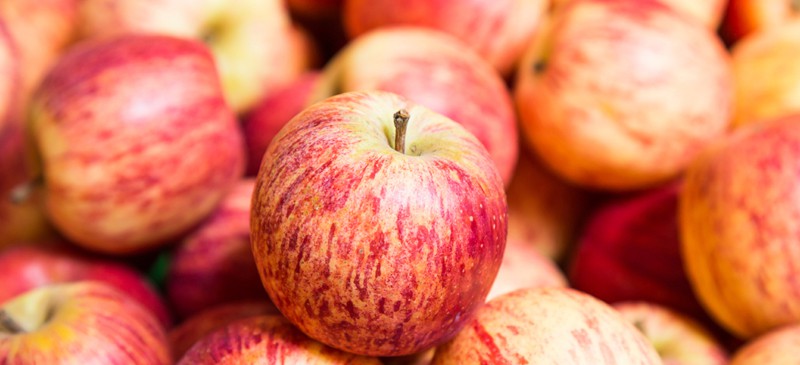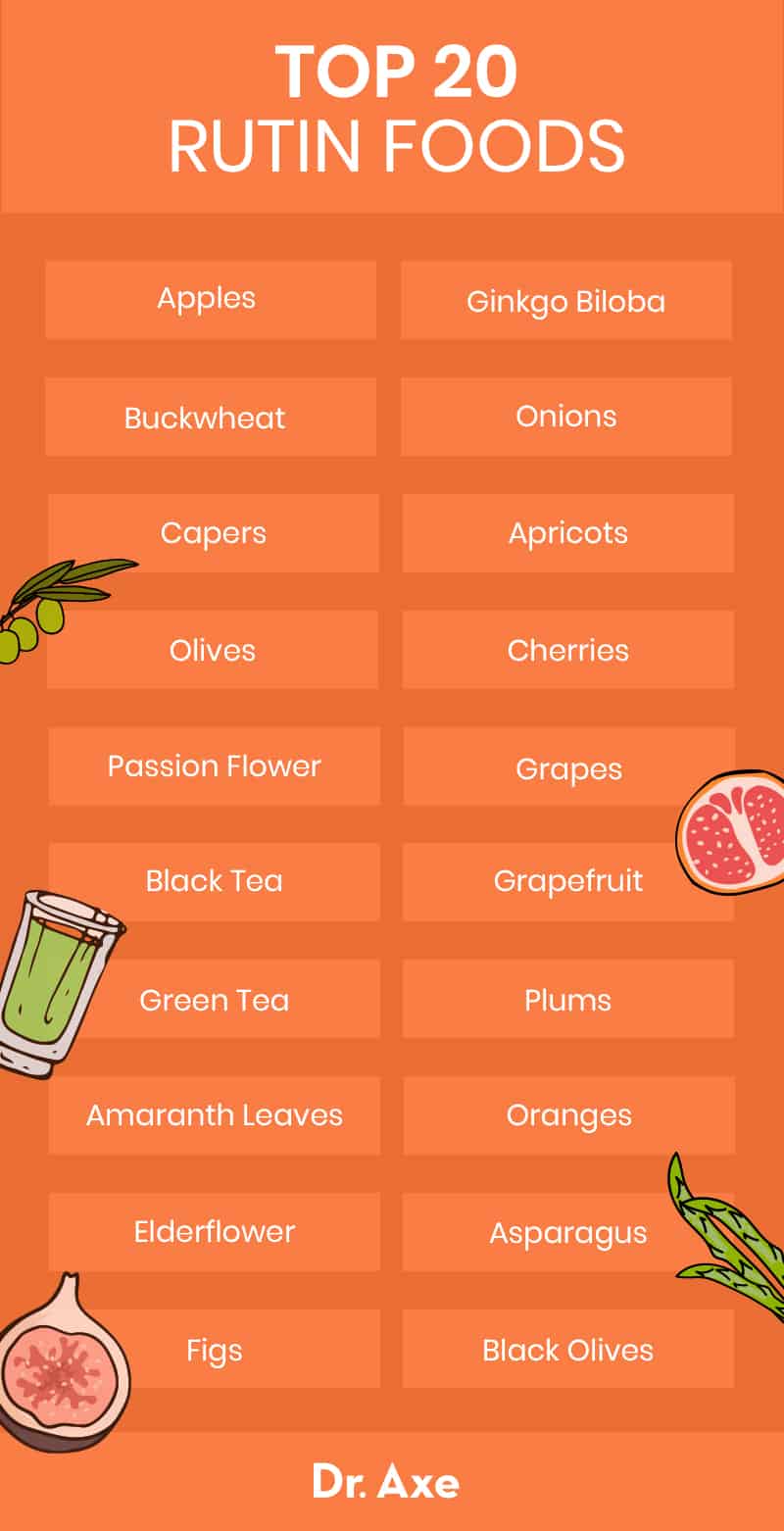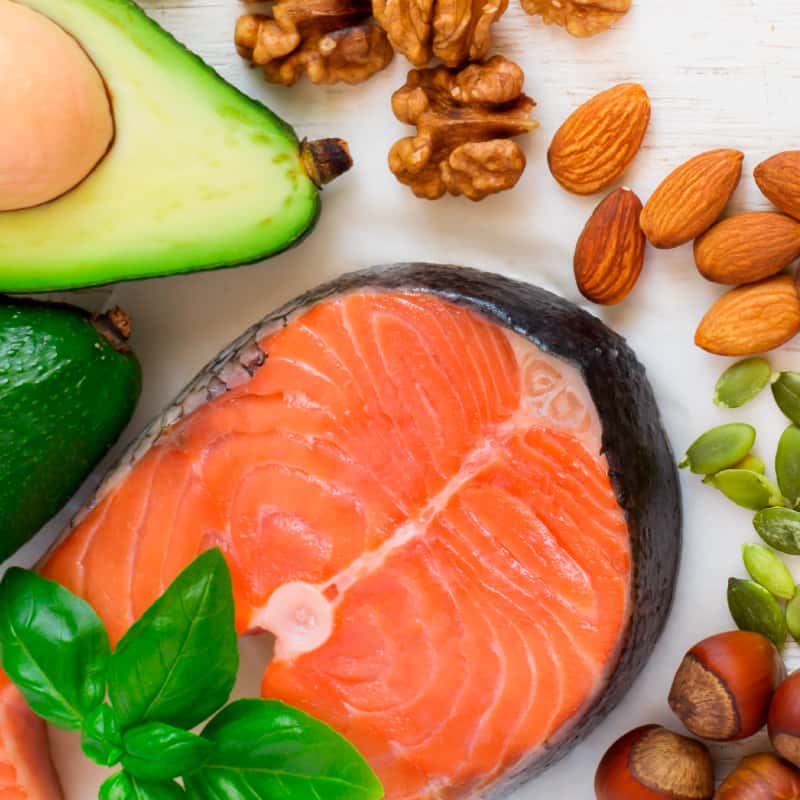This Dr. Axe content is medically reviewed or fact checked to ensure factually accurate information.
With strict editorial sourcing guidelines, we only link to academic research institutions, reputable media sites and, when research is available, medically peer-reviewed studies. Note that the numbers in parentheses (1, 2, etc.) are clickable links to these studies.
The information in our articles is NOT intended to replace a one-on-one relationship with a qualified health care professional and is not intended as medical advice.
This article is based on scientific evidence, written by experts and fact checked by our trained editorial staff. Note that the numbers in parentheses (1, 2, etc.) are clickable links to medically peer-reviewed studies.
Our team includes licensed nutritionists and dietitians, certified health education specialists, as well as certified strength and conditioning specialists, personal trainers and corrective exercise specialists. Our team aims to be not only thorough with its research, but also objective and unbiased.
The information in our articles is NOT intended to replace a one-on-one relationship with a qualified health care professional and is not intended as medical advice.
Rutin: A Flavonoid for Your Heart, Brain & Blood Health
December 14, 2018

You know the expression, “an apple a day, keeps the doctor away”? Well, it turns out that this may be true, in part, because of rutin.
Rutin, of the the most important constituents of apple nutrition and some other foods, has a wide array of beneficial effects on our health. Current research suggests that this vital phytochemical has pharmacological benefits for the treatment of a number of chronic diseases, including diabetes, hypertension, high cholesterol and cancer.
It’s no wonder why it has been a topic of recent research and hat rutin supplements are popular for conditions related to the heart, brain and skin.
What Is Rutin?
Rutin, which is also known as vitamin P and rutoside, is a bioflavonoid that’s found in certain foods, including apples, figs, most citrus fruits, buckwheat and green tea. Like all flavonoids, it has powerful antioxidant and anti-inflammatory effects. It’s used as medicine to strengthen blood vessels, improve blood circulation, lower cholesterol and relieve arthritis symptoms.
Rutin is also known for its potential ability to promote the production of collagen and help the body to use vitamin C properly.
The name of the flavonoid comes from the name of the plant Ruta graveolens, which also contains this phytonutrient. Chemically, rutin is a glycoside that comprises flavonolic aglycone quercetin, along with disaccharide rutinose.
Health Benefits
- Boosts Heart Health
- Relieves Arthritis Symptoms
- Fights Cancer
- Protects Against Metabolic Disease
- Protects Brain Health
- Prevents Blood Clots
- Improves Circulation
1. Boosts Heart Health
When it comes to your heart health, recent research suggests that rutin can help maintain blood vessel elasticity, reduce blood vessel brittleness, lower capillary permeability and prevent complications caused by hypertension.
A 2018 animal study published in Experimental and Therapeutic Medicine found that it inhibits heart disease through signaling a specific protein kinases called ERK1/2 and Akt. The most effective rutin dose used on pigs with coronary heart disease was 45 milligrams per kilogram of body weight. Rutin administration worked to reduce the size of dead tissue in the heart of pigs with heart disease, inhibited urine protein concentration and improved blood circulation.
Another 2014 animal study published in Human & Experimental Toxicology found that treatment with rutin and quercetin reduced the cardiovascular effects of a high-salt diet in hypertensive rats. In fact, the combination of these bioflavonoids was more effective than treatment with nifedipin, a medication that’s used to treat high blood pressure and chest pain.
2. Relieves Arthritis Symptoms
Animal studies show that this antioxidant has the power to inhibit acute and chronic inflammation. That makes it a potential natural treatment for arthritis. Researchers in Russia found that rutin was able to reduce the overproduction of free radicals in rheumatoid arthritis. They concluded it can be considered a useful supporting pharmaceutical agent.
Additionally, a 2017 lab study published in Pharmacology found that rutin improved the formation of tissue over the joint’s surface, improved cartilage and bone erosion, and reduced inflammation. This suggests that it has a protective effect against rheumatoid arthritis.
3. Fights Cancer
Rutin may serve as a therapeutic agent for fighting cancer because of its antioxidant and anti-inflammatory effects. It also has been shown to induce apoptosis, or cancer cell death, and display anti-tumor effects. Flavonoids have been used to sensitize cancer cells to anticancer drugs and reverse drug resistance for patients undergoing cancer treatment.
There’s a great deal of research involving humans, rodents and cells suggesting that this antioxidant works to reduce tumor size, increase cancer cell death and increase survival time. A scientific review discussing the pharmacological potential of rutin found that the flavonoid has displayed anticancer effects against a number of different cancers, including leukemia, colon cancer, colorectal cancer, melanoma, liver cancer and lung cancer.
A lab study published in Phytotherapy Research found that this phytochemical works as a chemosensitizer toward two human breast cancer cell lines. Rutin significantly increased the anticancer activity of drugs used to fight cancer and helped successfully stop cell cycle progression.
Another lab study published in the Scientific World Journal found that rutin helps fight neuroblastoma, a type of cancer that’s often found in the adrenal glands of children. It induced cell apoptosis and regulated the expression of genes related to apoptosis.
4. Protects Against Metabolic Disease
Research shows that rutin may protect us from developing metabolic syndrome as we age. Studies involving aged rats found that the flavonoid inhibited the increase of fasting blood glucose, insulin levels and blood pressure.
Rutin administration improved aging-related metabolic dysfunction in rats by reducing inflammation, lipid accumulation, oxidative stress and mitochondrial disease, a disorder that’s caused by failure of the mitochondria that’s found in almost every single cell of the human body.
5. Protects Brain Health
Research suggests that rutin has protective effects against brain injury and age-related damage. It also helps promote brain health because of its anti-inflammatory and antioxidant properties.
In 2018, research published in Oxidative Medicine and Cellular Longevity suggests that this bioflavonoid serves as a promising neuroprotective compound for the treatment of neurodegenerative diseases, including Alzheimer’s disease, Parkinson’s disease and Huntington’s disease. Researchers believe that it protects brain health by reducing pro-inflammatory cytokines, improving antioxidant enzyme activities and restoring the activities of mitochondrial complex enzymes within our cells.
6. Prevents Blood Clots
Investigators at Harvard-affiliated Beth Israel Deaconess Medical Center found that rutin may serve as a novel strategy for preventing thrombosis in animal models. Thrombosis is when a blood clot forms in an artery or vein. Deep vein thrombosis is particularly dangerous because it can cause life-threatening complications, such as strokes and heart attacks.
Researchers found that rutin inhibits protein disulfide isomerase (PDI), which is rapidly secreted from our platelets and endothelial cells during thrombosis. By blocking the secretion of PDI, the antioxidant proved to block thrombosis in mice.
Not only does it inhibit PDI, but it also prevents the compound from entering cells. Researchers found that it helped prevent blood clots in both mouse arteries and veins, and it’s said to be the only agent that can prevent both types of clots.
7. Improves Circulation
In traditional medicine, rutin is known for its ability to strengthen blood vessels and improve circulation. It is used to reduce the appearance of varicose veins, relieve hemorrhoids and prevent hemorrhagic strokes that are caused by broken veins or arteries.
A review published in the International Journal of Molecular Sciences indicates that rutin preparations were reported to significantly reduce leg swelling, relieve leg pain, and reduce leg cramps, heaviness and itching. This is likely due to its ability to reduce inflammation and improve blood circulation.
Related: Fisetin: A Senolytic Antioxidant for Healthy Aging & More
Top 20 Rutin Foods
Rutin is a flavonoid that’s found in many foods and plants, including citrus fruits, apples and buckwheat. The best way to get it into your diet is to eat foods high in this particular antioxidant.
Rutin is one of the active constituents in the following foods and plants:
- Apples
- Buckwheat
- Capers
- Olives
- Passion flower (used in teas and infusions)
- Black
- Green tea
- Amaranth leaves
- Elderflower (used in teas and extracts)
- Figs
- Ginkgo biloba (available in supplement and dried leaf forms)
- Onions
- Apricots
- Cherries
- Grapes
- Grapefruit
- Plums
- Oranges
- Asparagus
- Black olives

Supplement and Dosage Recommendations
Rutin is available as a supplement in most health food or vitamin stores. You can find a product that contains only rutin or one that contains a mixture of bioflavonoids, such as a bioflavonoid complex. For this reason, the amount of this particular flavonoid in a product varies greatly.
You’ll find that most rutin supplements on the market today contain 500 milligrams per capsule. There is no clear recommended rutin dosage, with doses ranging from 500 milligrams per day to four grams per day.
One study indicates that taking up to four grams orally per day is an effective and well-tolerated dose. However, this is much higher than the standard dose recommended on supplement products, so consult your health care provider before taking larger doses.
Rutin vs. Quercetin
Rutin is a glycoside of the flavonoid quercetin. It comes from the combination of quercetin and the disaccharide (a sugar) rutinose. In fact, it is sometimes referred to as purple quercetin.
Quercetin is also a type of flavonoid antioxidant that’s found in plants, including berries, broccoli and leafy greens. Quercetin is taken in capsule or tablet forms to fight oxidative stress, reduce inflammation, improve cardiovascular health, boost circulation and reverse cognitive impairment.
Both of these supplements are widely available. They can be found in many forms, with the amount of the active ingredient varying from product to product.
Recipes
It’s easy to add rutin foods to your diet because you can find the flavonoid in many common fruits and vegetables, including most citrus fruits, apple peels, asparagus and onions.
Capers also contain a good amount. This Olive Tapenade Recipe contains ½ cup of capers, so it is the perfect snack or appetizer for anyone trying to increase her intake of this bioflavonoid.
Buckwheat is another great source of this antioxidant. Buckwheat nutrition also includes a good amount of protein and fiber, so it’s an excellent food for your heart and digestion. It’s a gluten-free grain that can be added to salads, soups and chili recipes. You can also use buckwheat flour or buckwheat noodles in your cooking.
This Soba Noodles Recipe is made with buckwheat soba noodles. It also contains health-promoting veggies like carrots, bell pepper, red cabbage and onions.
Aside from eating apples raw to increase your rutin consumption, try this Baked Apple Rings recipe. It makes for a great snack and works to curb your hunger too.
Risks and Side Effects
Generally, rutin is considered safe when taken in recommended doses and consumed in foods. There have been reports of minor rutin side effects, including headache, rashes, upset stomach and flushing. Before starting any new supplement, consult with your health care provider, especially if you already take prescription medications.
It is possible to have a rutin allergy. Symptoms include eye and respiratory irritation and adverse skin reactions.
Rutin is not recommended for women who are pregnant or nursing because there is not enough evidence to be sure that it’s safe under these circumstances.
Final Thoughts
- Rutin is a bioflavonoid that’s found in certain plants. It comprises quercetin and rutinose, and it gets its name from the plant Ruta graveolens.
- Like all flavonoids, it has powerful antioxidant and anti-inflammatory effects. When consumed naturally in foods or taken in supplement form, this antioxidant has the power to benefit the health of your heart, brain, blood vessels and skin.
- Some of the best sources of this powerful antioxidant include apples, figs, most citrus fruits, buckwheat, capers and black tea.










